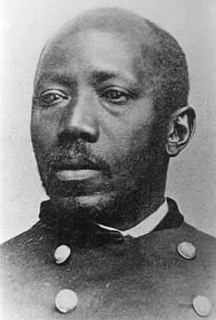A Quote by Bill Vaughan
Know, he that foretells his own calamity, and makes events before they come, twice over, doth endure the pains of evil destiny.
Related Quotes
He that doth righteousness; that is, righteousness which the gospel calleth so, is righteous; that is, precedent to, or before he doth that righteousness. For he doth not say, he shall make his person righteous by acts of righteousness that he shall do; for then an evil tree may bear good fruit, yea, and make itself good by doing so; but he saith, He that doth righteousness is righteous; as he saith, He that doth righteousness is born of him.
The translator ... Peculiar outcast, ghost in the world of literature, recreating in another form something already created, creating and not creating, writing words that are his own and not his own, writing a work not original to him, composing with utmost pains and without recognition of his pains or the fact that the composition really is his own.
Both destiny's kisses and its dope-slaps illustrate an individual person's basic personal powerlessness over the really meaningful events in his life: i.e. almost nothing important that ever happens to you happens because you engineer it. Destiny has no beeper; destiny always leans trenchcoated out of an alley with some sort of Psst that you usually can't even hear because you're in such a rush to or from something important you've tried to engineer.
Our two souls therefore, which are one, Though I must go, endure not yet A breach, but an expansion, Like gold to airy thinness beat. If they be two, they are two so As stiff twin compasses are two; Thy soul, the fixed foot, makes no show To move, but doth if th' other do. And though it in the center sit, Yet when the other far doth roam, It leans and hearkens after it, And grows erect, as that comes home. Suth wilt thou be to me, who must Like th' other foot, obliquely run; Thy firmness makes my circle just, And makes me end where I began.

































